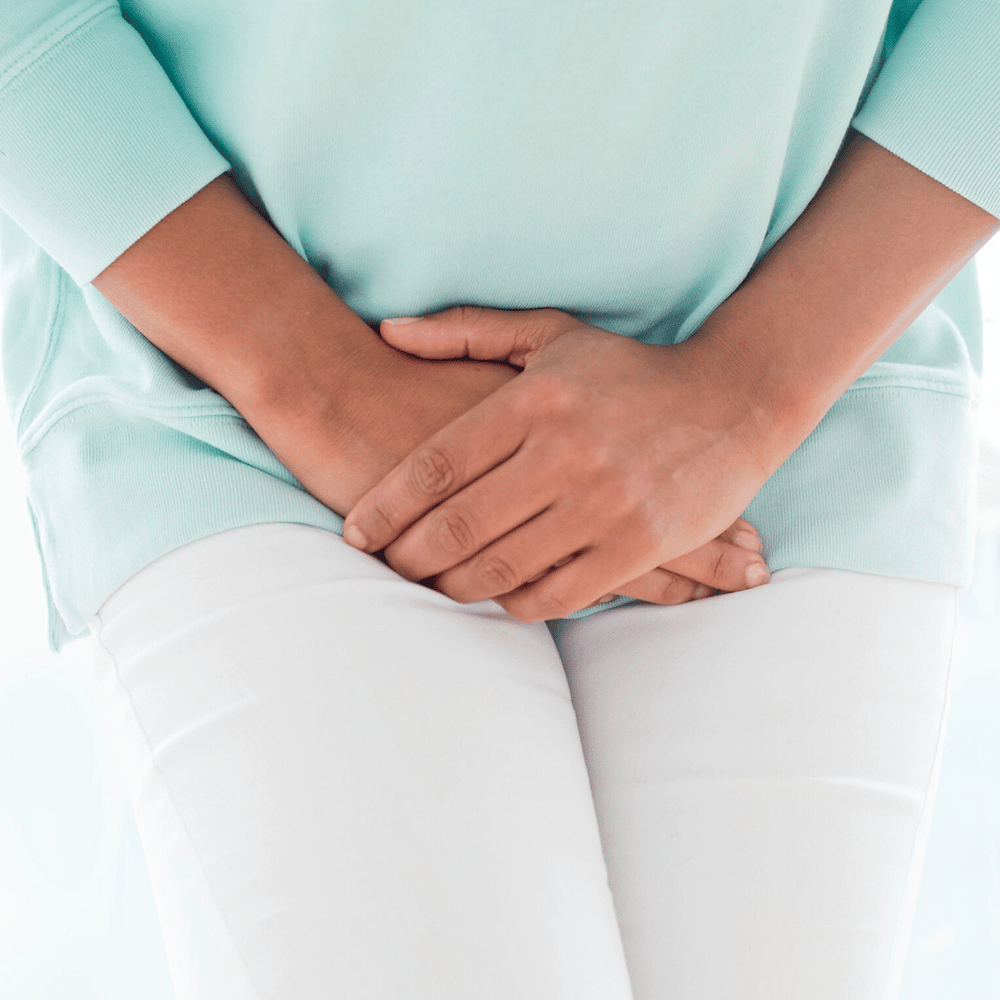How Can Kegels Help
If your leaks are diagnosed as stress incontinence due to a weakened pelvic floor, your doctors first recommendation will probably be to start pelvic floor exercises called Kegel exercises.
Kegels are simple contract-and-release exercises that help to build the strength of the pelvic floor muscles. When the muscles are strong, we have control of when our bodies release urine. Using a smart Kegel exerciser can help build strength more effectively and quickly. Your doctor will be able to instruct you on the correct Kegel technique, and offer advice on choosing an exerciser. To learn more about Kegel exercises, you can read our Beginners Guide to Kegels. Theyre easy to do, low risk, and so effective that theyre the number one doctor recommended solution for mild urinary incontinence.
For extra support, your doctor may recommend seeing a womens health physiotherapist who can give you proper exercises to keep your situation stable, and prevent it from getting worse.
If you are reading this and you have leaks, now is the time to do something about it! You are not alone, and no one should have to live with leaks they can be solved. Leaks are nothing to be embarrassed about and stopping them is often very simple, once you decide to take action.
Find Out How Kegels Can Help These Women Conquer Their Leaking Fears
Why Do I Feel Like Leaking Urine
Pressure caused by laughing, sneezing, or exercising can cause you to leak urine. Urinary incontinence may also happen if there is a problem with the nerves that control the bladder muscles and urethra. Urinary incontinence can mean you leak a small amount of urine or release a lot of urine all at once.
Is leaking in first trimester normal?
Youre not alone! This leaking is called stress incontinence and its common during pregnancy. About a third of pregnant women expecting their first baby experience it, and if youve had a baby before, youre even more likely to have it.
All About Stress Urinary Incontinence
Urinary incontinence is the involuntary release of urine, often due to a loss of bladder control. The pelvic floor and bladder muscles hold the bladder in place. When the bladder fills, the brain sends signals to the muscles to contract and expel the urine. If the muscles are too weak, urine can escape with a cough, sneeze, lifting, or physical exercise. This is known as stress incontinence. Some people with stress incontinence will also have an overactive bladder, or needing to go to the bathroom frequently.
Read Also: Side Effects Of Bladder Botox Injections
You Mentioned Other Types Of Incontinence How Do I Know What Type I Have
If youre not sure which type of bladder control problem you have, then visit your doctor or healthcare professional. They can help you figure this out by asking questions about the symptoms that youre experiencing and also give you a physical examination.
If SUI is your problem, then your doctor may ask if pregnancy and childbirth are factors in your case.
If they suspect another type of incontinence, such as urge incontinence, then they may ask if you feel the need to pee when you cough or sneeze.
Once your doctor knows what type of incontinence you have, they can help determine realistic treatment options for your symptoms.
When Does Pregnancy Incontinence Start

The answer to this question is that it depends on the individual. Some people may experience incontinence immediately, while others may not experience it until their third trimester.
The cause of this variation is the same as for other pregnancy symptoms: hormones. As your body produces more estrogen and relaxin, both responsible for loosening ligaments and muscles, you may notice more difficulty controlling your bladder as your belly grows.
You May Like: What Can I Do For A Prolapsed Bladder
How To Stop Urine Leakage When Coughing Home Remedies
Urinary incontinence is described as a failure to hold urine that eventually causes urine leak or an uncontrolled loss of urine.
Its a urological condition, which is more common than you think. In this article, we will discuss some of the best tips on how to stop urine leakage when coughing .
With these natural home remedies for urinary incontinence, you should be great.
However, before we come to that point on how to stop urine leakage when coughing , lets discuss Urinary Incontinence
Also Check: Where Does A Bladder Infection Hurt
How To Reduce Incontinence In Pregnancy
You can do things to reduce your symptoms and gain more control over your life. Here are five tips for reducing incontinence in pregnancy:
Pelvic floor exercises to manage pregnancy incontinence
Also Check: Women’s Bladder Falling Out
Stress Incontinence In Women
Stress incontinence in women may be caused by pregnancy, childbirth and menopause. Pregnancy and childbirth can stretch and weaken the pelvic floor muscles that support the urethra causing stress incontinence during activities that push down on the bladder.
During menopause, oestrogen is produced in lower quantities. Oestrogen helps to maintain the thickness of the urethral lining to keep the urethra sealed after passing urine . As a result of this loss of oestrogen, some women experience stress incontinence.
Causes Of Urinary Incontinence
Stress incontinence is usually the result of the weakening of or damage to the muscles used to prevent urination, such as the pelvic floor muscles and the urethral sphincter.
Urge incontinence is usually the result of overactivity of the detrusor muscles, which control the bladder.
Overflow incontinence is often caused by an obstruction or blockage in your bladder, which prevents it from emptying fully.
Total incontinence may be caused by a problem with the bladder from birth, a spinal injury, or a small, tunnel like hole that can form between the bladder and a nearby area .
Certain things can increase the chances of urinary incontinence, including:
- pregnancy and vaginal birth
Find out more about the causes of urinary incontinence.
You May Like: Cream Of Tartar For Bladder Infection
Why Does My Bladder Leak When I Cough
Posted on by Advanced Urology of Southwest Louisianain Urinary Incontinence, Women
If this has ever happened to you, you know how embarrassing a bladder leak can be, especially the first time. Then it begins to occur more frequently. Is it normal as I grow older, and why does my bladder leak when I cough?
Lower Urinary Tract Symptoms
The lower urinary tract includes the bladder and the tube that urine passes through as it leaves the body .
Lower urinary tract symptoms are common as people get older.
They can include:
- problems with storing urine, such as an urgent or frequent need to pass urine or feeling like you need to go again straight after youve just been
- problems with passing urine, such as a slow stream of urine, straining to pass urine, or stopping and starting as you pass urine
- problems after youve passed urine, such as feeling that youve not completely emptied your bladder or passing a few drops of urine after you think youve finished
Experiencing LUTS can make urinary incontinence more likely.
Page last reviewed: 07 November 2019 Next review due: 07 November 2022
Don’t Miss: Side Effects Of Immunotherapy For Bladder Cancer
I Pee When I Sneeze: Is This Normal
Posted on by Cleveland Urologyin Urinary Incontinence
For anyone who asks, I pee when I sneeze: is this normal? Lets get right to the point, NO is the answer. This type of leakage is not normal. There may be an unknown number of people with this type of incontinence, but that doesnt make it normal. You dont need to go through life with embarrassing leakage. Lets find out what your options are.
Seeking Professional Advice Is The First Step

In many cases incontinence can be prevented, better managed and even cured. Talk to your doctor, a continence health professional or contact the National Continence Helpline on .
The National Continence Helpline is staffed by Nurse Continence Specialists who offer free and confidential information, advice and support. They also provide a wide range of continence-related resources and referrals to local services.
You May Like: How Do You Know If Your Bladder Is Leaking
Getting The Right Kind Of Additional Exercise
Donât Miss: Home Remedies For Bladder Cancer
What Can Be Done
First of all, whether to do something or nothing is up to the woman who is experiencing the leakage. For some women, an infrequent small leak of urine is not bothersome, and does not feel worth the effort of intervening. However, this leakage indicates that the door is weak, and some women may wish to be proactive and try to avoid any worsening of the problem.
Preventative strategies could include strengthening the muscles of the pelvic floor with Kegel exercises. It could also include avoiding unnecessary strain to the pelvic floor support tissues . Most women are not aware that certain daily life habits can breakdown supportive tissue to the pelvic organs and the urethra little by little over time. Examples of this are frequent bouts of constipation with straining, a chronic deep cough that puts frequent pressure against the pelvic support system, or heavy or improper lifting techniques. All of these generate stress and strain on the connective tissue and can cause further loss of support. Thus, treating constipation or a chronic cough, avoiding unusually heavy lifting, and learning how to lift correctly are all things that can prevent further loss of support to the urethra.
Make an appointment to talk to a gynecologist about leakage or others issues today!
Don’t Miss: How Long Does It Take For Bladder Cancer To Spread
Is It Normal To Leak Urine During Pregnancy
Many pregnant women leak a bit of urine when they cough, sneeze, laugh, or exercise. This is called urinary incontinence, and about 41 percent of pregnant women experience it. It can happen at any stage of pregnancy, but you’re more likely to have it the further along you are.
To understand why you may leak a little urine when you’re pregnant, it helps to understand how your bladder works. This organ stores urine and has muscles that push the urine into the small tube that carries urine out of your body . Another muscle holds the urethra closed, relaxing only when you’re ready to go.
That whole system is supported by your pelvic floor muscles. In pregnancy, increased hormone levels can loosen these muscles and surrounding ligaments, making it harder to hold back urine when you have to pee. During pregnancy your blood volume also increases, which means more fluid is being processed through your kidneys, resulting in increased urine production. And as your belly gets bigger, your uterus puts pressure on your bladder and pelvic floor muscles. That’s why you have to pee so frequently!
Get The Right Treatment For You
Seeking help for stress urinary incontinence is important. Not only is the condition physically distressing, but there are also emotional consequences. Avoiding the condition is not the solution. Speak with an OB/GYN right away. After an assessment, the doctor can put together a plan to make sneezing a bit more comfortable.
Recommended Reading: Treatment Of Muscle Invasive Bladder Cancer
What Causes Bladder Leaks
There are two main types of urinary incontinence:
Stress incontinence
If you have this type, activities that raise the pressure inside your abdomen cause urine to leak through the ring of muscle in your bladder that normally holds it in. Coughing, sneezing, jumping and lifting heavy objects could lead to a leak.
Going through childbirth, smoking or being overweight can raise the risk of stress incontinence for women, Wright says. Stress incontinence in men is rare, and when it arises, its often due to prostate cancer treatment, such as radiation or surgery.
Urge incontinence
With this type, your brain, spinal cord and bladder dont work together properly to allow you to hold and release urine at the right time. Your bladder may suddenly empty itself without warning. Or you may feel like you need to urinate frequently, a problem called overactive bladder.
Some diseases that affect the nervous system, such as multiple sclerosis or stroke, can cause this kind of incontinence, says Wright. In men, an enlarged prostate may be the culprit. But in many cases, doctors dont know what causes urge incontinence.
It is possible to have both types of incontinence at the same time.
Take A Virtual Tour Of Our Labor & Delivery Suites
Before your big day arrives, get a preview of the accommodations for new moms at UT Southwesterns Clements University Hospital. From the chef-prepared meals to the roomy, high-tech labor and delivery suites, we want to make sure that you, your baby, and your family have the opportunity to bond in a safe and soothing environment.
Also Check: Why Do You Get Bladder Infections
What Is Urinary Incontinence
Urinary incontinence â the loss of bladder control â is a common and often embarrassing problem. The severity ranges from occasionally leaking urine when you cough or sneeze to having an urge to urinate that’s so sudden and strong you don’t get to a toilet in time. It can be occasional, minor leaks of urine to frequent wetness.
Mostly, Urinary incontinence happens after childbirth as the perineum becomes lax after delivery, says Dr Manchanda.
“During childbirth the muscles become more lax and because of which the uterus comes down a little bit and that itself could lead to Urinary Incontinence. Having said that sometimes even simple urinary infections can lead to incontinence, but it is highly treatable,” adds Dr Manchanda.
The Mayo Clinic lists the following types of urinary incontinence:
- Stress incontinence. Urine leaks when you exert pressure on your bladder by coughing, sneezing, laughing, exercising or lifting something heavy.
- Urge incontinence. You have a sudden, intense urge to urinate followed by an involuntary loss of urine. You may need to urinate often, including throughout the night. This could be used due to an infection also.
- Overflow incontinence. You experience frequent or constant dribbling of urine due to a bladder that doesn’t empty completely.
- Functional incontinence. A physical or mental impairment keeps you from making it to the toilet in time.
- Mixed incontinence. You experience more than one type of urinary incontinence.
How To Help Relive Coughing From A Cold Or Flu: Tips For Relief

We know how annoying a constant cough can beâit can keep you up at night, make you light-headed, and even cause the loss of bladder control. So, how can you stop constant coughing? The key is suppressing your cough. Read on for some great information on how to stop constant coughing, so you can get back to your life!
Read Also: Non Muscle Invasive Bladder Cancer Treatment
Home Treatment Of Uti
If you have a mild to moderate UTI, you can try the following steps at home:
Bottom Line
The first line of treatment for UTIs at home focuses on drinking plenty of fluids and increasing vitamin C intake.
This will help flush the bacteria through your urinary tract and decreases inflammation of the bladder.
Cranberry helps prevent bacteria from sticking to the walls of the urinary tract, which prevents them from multiplying.
Probiotics are also another way to prevent UTIs because they help kill E. coli by competing for nutrients and attachment sites on the bladder wall.
Clove oil is an anti-inflammatory that may be effective to help fight off pain, pressure, burning, and frequent urination associated with a UTI. There are many natural remedies you can try to prevent UTIs.
If symptoms continue for more than a few days, seek medical attention immediately.
You May Like: Can Endometriosis Affect Your Bladder
Why Does This Happen
Urine leakage that is caused by a sudden increase in abdominal pressure, such as occurs with a cough or strenuous exercise, is called stress urinary incontinence. Normally urine only leaves the body when you are purposefully emptying your bladder. With stress urinary incontinence, urine leaves the bladder unexpectedly at the time of a cough, sneeze, laugh, jump, etc. This happens because the strength of the bladder outlet the urethra, is weaker and no longer is able to keep the outlet closed during the increase in pressure on the bladder. This is not normal and it indicates a weakness of the door. This weakness can progress over time, making the leakage more and more common.
Weakening of the urethra can be caused by loss of strength of the supporting muscles known as the pelvic floor muscles. These are the same ones that you squeeze when trying to keep urine from passing. Another cause of weakness of the bladder door is a loss of strength of the connective tissue which supports the urethra and lower bladder. This connective tissue acts like a strong hammock that keeps the urethra and bladder in the best position. When the pelvic floor muscles become weak or the hammock support loses its strength, stress leakage can occur.
Read Also: How To Diagnose Bladder Infection